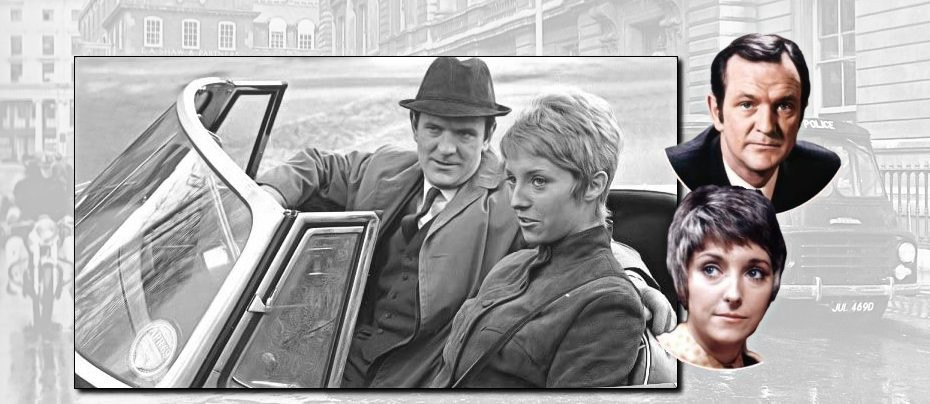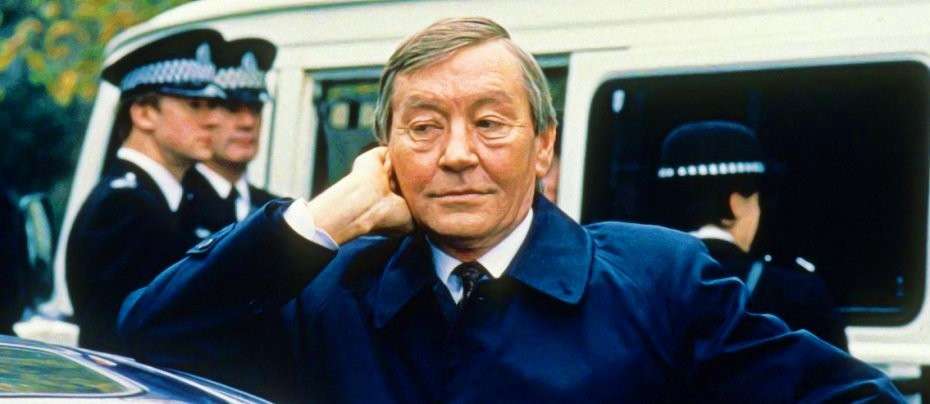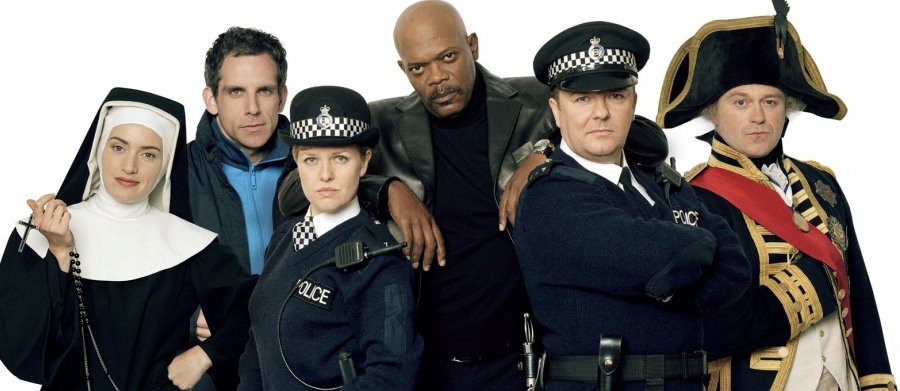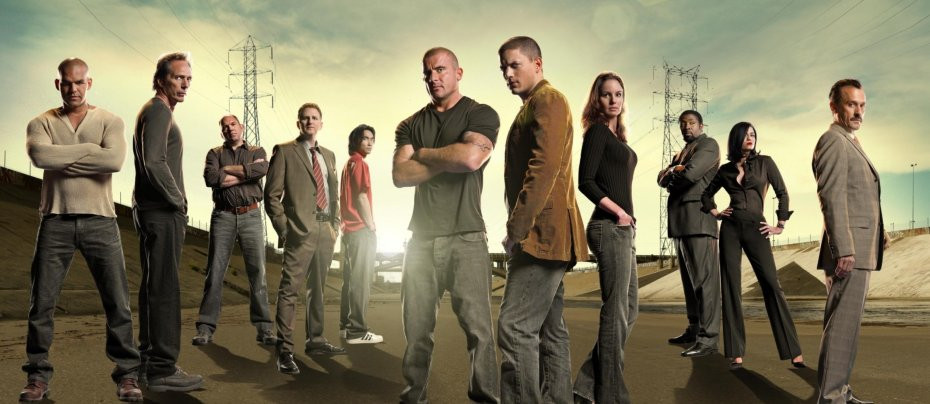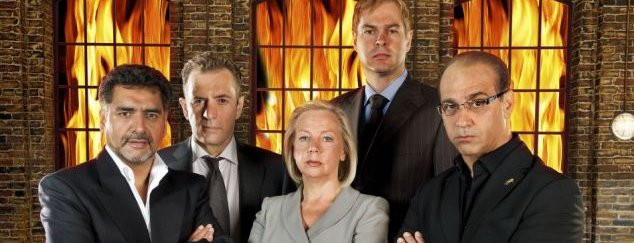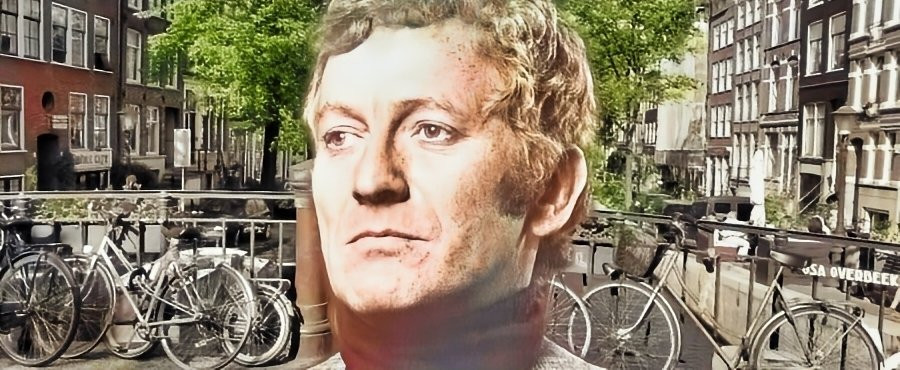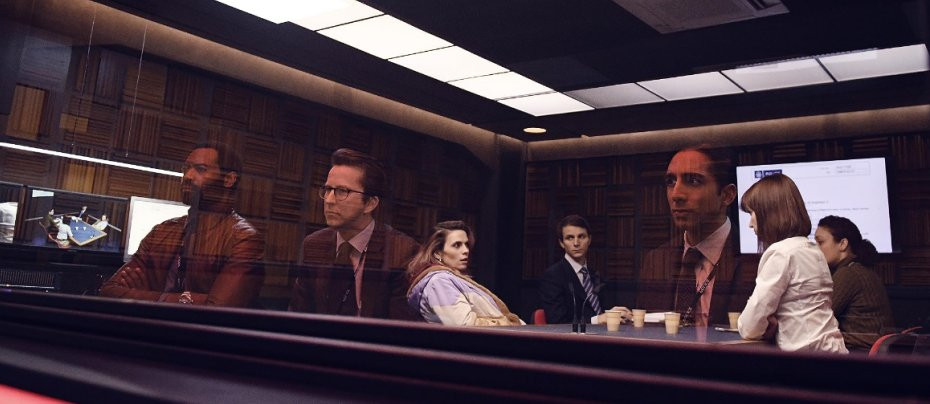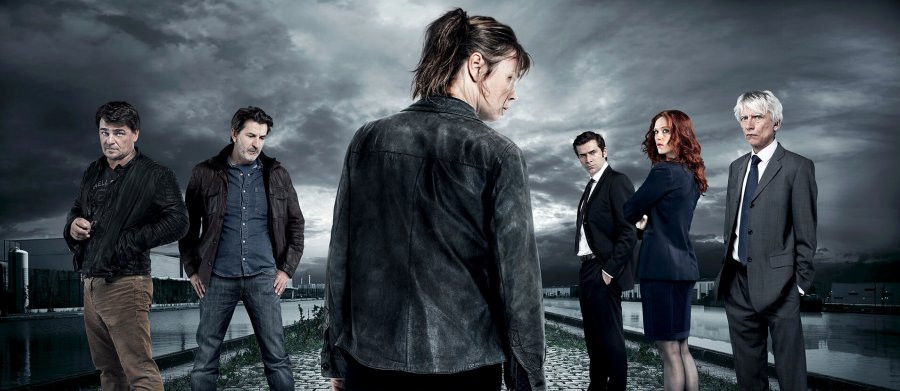
Spiral / Engrenages
2005 - FranceNever go to France. Yes, it is a beautiful country, with great wine, great food, great liquors, great culture, great history, great landscapes, and some charming people - but if there is the remotest chance of getting entangled with the French criminal and legal system, it is simply not worth the risk.
This is seems to be the message of Engrenages, the superb French police procedural drama broadcast as Spiral in the UK. The literal meaning of the French title is "gears" and it has connotations of being caught in a machine or a process.
The horror of this machine is conveyed very effectively by throwing the viewer, especially the non-French viewer, right into it with little attempt at explanation. This is very disorienting, which may be why the first couple of seasons made little impact when they were first shown on BBC4. Then came the phenomenal success of the Danish thriller Forbrydelsen, shown on the BBC as The Killing, which drew attention to the high quality drama now being produced in several European countries, including France. This prompted audiences to take another look at Spiral, and they discovered a gritty detective show comparable with The Sweeney and The Wire.

A few words of explanation might help you to appreciate the finer points of Spiral, which the English subtitles tend to get wrong, but there is a lot to be said for learning them only after watching it the first time: that way, you get the full dramatic effect of the confusion of the whole system. So if you have never seen it - and you really should - you might want to consider skipping the next two paragraphs until you have.
The British system is complicated enough, but there are still only two main players in any criminal case, the Police and the Courts. In France, in addition to the Courts, there are Investigating Magistrates - 'Juges d'Instruction' in French - with wide ranging powers to bring cases before the Courts. Even more powerful in some respects are the Public Prosecutors - 'Procureurs' in French, honestly - towards whom even the Courts and Investigating Magistrates are depicted in Spiral as being very deferential. These three authorities are shown as being in a perpetual power struggle - with the Police and the individual caught in the middle.
France also has two national Police forces. Spiral is concerned with the Judicial Police of the Prefecture of Paris, the successors to the legendary Surete. Even within this organisation there are constant turf wars, at least according to Spiral. The elite central sections have wonderful names like the 'Brigade de Repression du Banditisme' (the equivalent of the old Flying Squad in London's Metropolitan Police), the 'Brigade des Stupefiants' (the Drugs Squad), the 'Brigade de Repression du Proxenetisme' (the Vice Squad), the 'Brigade de Recherche et d'Intervention' (an innocuous name for what is better known as 'l'Antigang'), and the old established and more unhappily titled 'Brigade Criminelle' (in fact the Homicide and Serious Crimes Squad, the elite of the elite). Of much lower status are the territorial Divisions, each serving a group of the 'Arrondissements' or Districts of Paris. This is where our principal protagonists are to be found, in the Second Division, covering some of the less glamorous suburbs of the Metropolis.
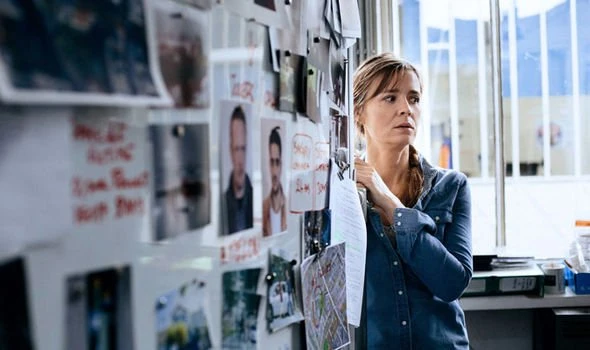
A very tight knit team of detectives is led by Captain, later Commandant, Laure Berthaud (Caroline Proust). 'Commandant' is a particularly French military rank between Captain and Major, a sort of Senior Captain. However, the fact that they have the same titles as Commissioned Officers in the Army cannot disguise the fact that Laure and her team usually get stuck with the grunt work of criminal investigation. There is a definite class distinction between them and their 'Commissaire' or Superintendent. Unlike British Police Superintendents, who rise through the ranks, Commissaires are usually appointed directly from Law School.

Laure is very committed to her work, perhaps too committed: she is good at what she does, she knows it, and she gets results, but her obsession with getting the job done sometimes leads her to make impetuous decisions, and her personal life, which takes a distant second place to her cases, is a disaster area due to the combination of neglect and some even worse decisions. Female detectives in Anglo-Saxon productions are usually played by well dressed attractive actresses who tend to give the impression that they are slumming it between modelling assignments. Proust looks the real deal: she is cute, perhaps pretty, rather than classically beautiful, but the impression she gives is that she is in constant need of a shower.
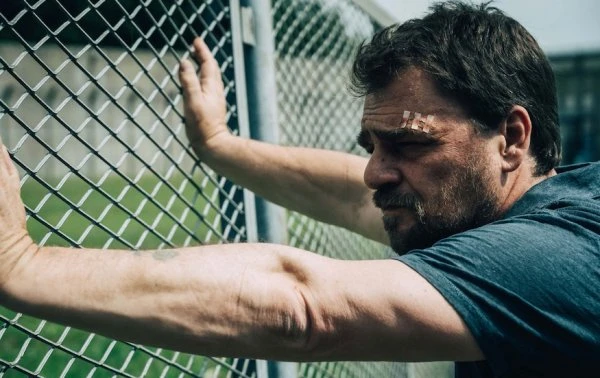
Tough and aggressive, but without any hint of the apparent superpowers that are supposed to make her American equivalents more than the equal of any man, Laure commands great loyalty from her team. Her physical strength is provided by her enforcer, and, to be honest, enabler, Lieutenant Gilles Escoffier (Thierry Godard), known as "Gilou," an affable cop's cop with the build of a prop forward.
The corruption of their Police has long been a staple of French film and television productions, from the Philippe Noiret classic Les Ripoux, released as Le Cop in the UK, to Braquo, the French equivalent of The Shield. By these standards, Laure, Gilou, Tom, JP, Nico, and the team are relatively honest - they do not steal or take bribes, and all that they do is motivated by the greater good of solving the case, but they feel that this end justifies the means, so they cut corners, they lie compulsively, and they tear up the rule book whenever they feel they must.
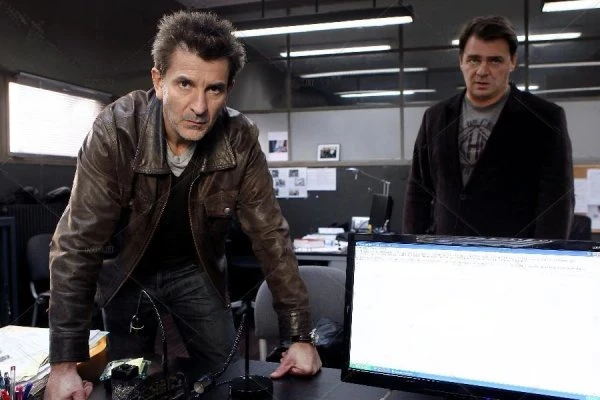
Laure's sensible second in command, Lieutenant Frederic Fromentin (Fred Bianconi), known as "Tintin" because of his hair, is uncomfortable with some of Laure's methods, and often finds his integrity in conflict with his loyalty to her and to the team.
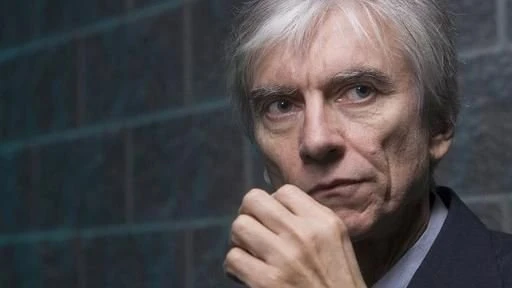
Integrity is an even bigger issue for Francois Roban (Philippe Duclos), an Investigating Magistrate with whom Laure forges a productive but often uneasy working relationship. Roban, like the infamous Robespierre, considers himself incorruptible: he believes passionately in what he is doing and is scrupulous to the letter, leaving little room for mercy or humanity - again, like Robespierre. However, as we get to know Roban, we see he is a rather sad, lonely, even pathetic man, whose social and political ineptitude leads him to make obviously avoidable mistakes.
A product of the generation following the Hill Street Blues revolution, Spiral views a case from several different perspectives as opposed to a single hero-detective who knows what the audience knows. It also seems to have been influenced by the Law and Order franchise in that it involves the lawyers who take cases to Court as well as the Police who investigate them, even if the focus in later seasons is increasingly on Laure and Gilou.

There is a clear visual contrast between the seediness of 'Les flics' and the sleek elegance of the lawyers, a class distinction even greater than that between the line detectives and their superiors. The legal profession is represented by two impossibly good looking people, Josephine Karlsson (Audrey Fleurot), a ruthlessly ambitious trial advocate in a dodgy private practice, and Pierre Clement (Gregory Fitoussi), a high minded Assistant Prosecutor with a golden career mapped out for him. It is easy to predict how both their character arcs will work out - but only up to a point: Spiral' is good at delivering shocks and surprises when you least expect them, indeed just when you have been lulled into thinking you know how everything will play out.
Each of the eight seasons is centred on a major case and has a number of subplots. As often as not, the subplots turn out to be related to the major case, a common device in police procedurals which can seem unrealistic, even if it is often a dramatic necessity. After all, coincidences really do happen in real life, if not as frequently as in drama, and if someone is going to make a major discovery by accident it might as well be a leading character.
The Paris of Spiral is definitely not the City of Lights beloved of tourists. Apart from a few shots of the centre, mainly at night, it spends most of its time in the depressing suburbs to the north and east.
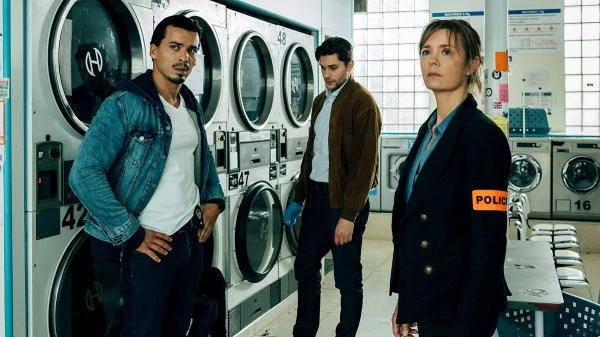
The picture it paints of modern France in general is not flattering. Although some clumsy moments in the script suggest that any agenda is, predictably, very much in the opposite direction, Spiral often plays like a party political broadcast on behalf of the anti-immigration Front National. Is it really true that, as one character suggests, half the Police vote Front National? The claim is controversial, but Spiral makes it seem credible. Whether this is a fair and accurate depiction of the state of French cities today only a resident can say. It should perhaps be stressed that it is not meant to be. It is only a detective story, not a social commentary. Policemen rarely see the best of any civilisation, and it must not be forgotten that it is in the nature of drama to exaggerate for effect. Even so, the Police in Spiral are shown as barely holding the line in the face of what appears to be a total collapse of social cohesion.
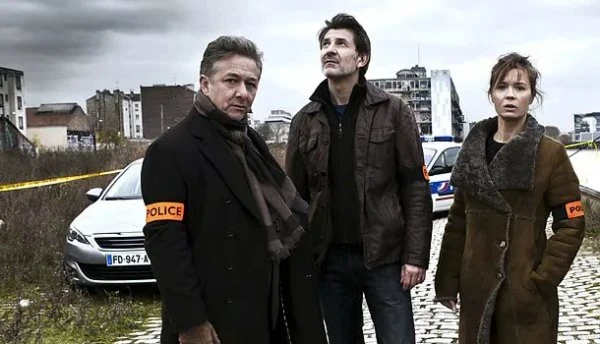
If the French legal and political systems emerge from Spiral looking pretty bad, the same is definitely not true of French television drama. Not so very long ago the most entertaining shows on French networks were hilariously dubbed Anglo-American imports. Spiral showed the world that France is now making slick, well paced, professionally produced series every bit as good as, and possibly superior to, the very best British and American productions. The realistic cinematography, in the best French cinematic tradition, combined with perfect casting and almost universally faultless performances make it easy to forget that one is watching actors. It is as if the French 'policier' set out to be everything a stereotypical English language detective mystery like Midsomer Murders is not - and succeeded brilliantly. Vive la difference!
Seen this show? How do you rate it?
Seen this show? How do you rate it?
Published on April 28th, 2021. Written by John Winterson Richards for Television Heaven.


